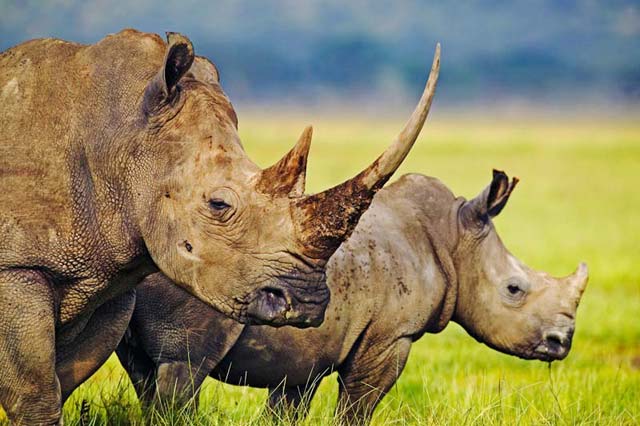
Gland, Switzerland, 2 March 2010—The release of six alleged rhino poachers from custody two weeks before a meeting of the largest wildlife trade convention is emblematic of the chronic lack of political will to enact enforcement efforts required to save these endangered species.
A Zimbabwean court last week granted bail to six men arrested at Bubye Valley Conservancy, home to Zimbabwe’s largest remaining rhino population, in connection with rhino poaching. Charges included illegal possession of firearms and illegal possession of a rhino horn.
The incident, part of a surge in rhino poaching in Zimbabwe and South Africa, is made worse by a lack of enforcement support in Zimbabwe in particular.
As 175 countries prepare to meet to for the 15th Conference of the Parties to the Convention on the International Trade in Endangered Species of Wild Fauna and Flora (CITES CoP 15) in Doha, in March, the increased poaching of rhinos and trade in rhino horns—compounded by failed enforcement efforts—is threatening to undermine conservation successes to date.
Most rhinos are listed in the Convention’s Appendix I, which bans trade in their parts for commercial purposes. Countries participating in the CITES convention have been tasked with combating illegal trade in rhino horn.
“Zimbabwe’s failure to live up to its obligations to CITES is unacceptable and has caused its already endangered rhino population to decline,” said Colman O’Criodain, Wildlife Trade Analyst, WWF International. “The time has come for the CITES Parties collectively to decide how to address this failure.”
Press Release: TRAFFIC, 2 March 2010, www.traffic.org
… read the full Release at: www.traffic.org/home/2010/3/2/release-of-rhino-poachers-exposes-widespread-enforcement-fai.html









